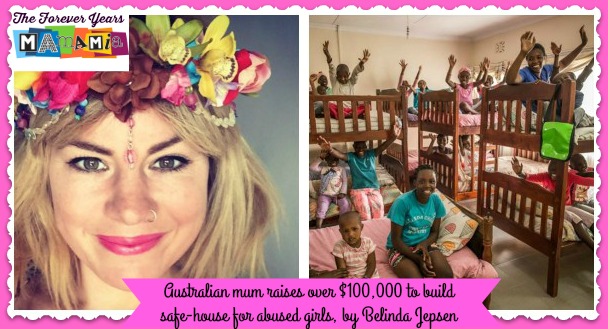
I went to a dinner party at a friend’s home last weekend, and met her five-year-old daughter for the first time.
Little Maya was all curly brown hair, doe-like dark eyes, and adorable in her shiny pink nightgown. I wanted to squeal, “Maya, you’re so cute! Look at you! Turn around and model that pretty ruffled gown, you gorgeous thing!”
But I didn’t. I squelched myself. As I always bite my tongue when I meet little girls, restraining myself from my first impulse, which is to tell them how darn cute/ pretty/ beautiful/ well-dressed/ well-manicured/ well-coiffed they are.
What’s wrong with that? It’s our culture’s standard talking-to-little-girls icebreaker, isn’t it? And why not give them a sincere compliment to boost their self-esteem? Because they are so darling I just want to burst when I meet them, honestly.
Hold that thought for just a moment.
This week ABC news reported that nearly half of all three- to six-year-old girls worry about being fat. In my book, Think: Straight Talk for Women to Stay Smart in a Dumbed-Down World, I reveal that fifteen to eighteen percent of girls under twelve now wear mascara, eyeliner and lipstick regularly; eating disorders are up and self-esteem is down; and twenty-five percent of young American women would rather win America’s next top model than the Nobel Peace Prize. Even bright, successful college women say they’d rather be hot than smart. A Miami mom just died from cosmetic surgery, leaving behind two teenagers. This keeps happening, and it breaks my heart.
Teaching girls that their appearance is the first thing you notice tells them that looks are more important than anything. It sets them up for dieting at age 5 and foundation at age 11 and boob jobs at 17 and Botox at 23. As our cultural imperative for girls to be hot 24/7 has become the new normal, American women have become increasingly unhappy. What’s missing? A life of meaning, a life of ideas and reading books and being valued for our thoughts and accomplishments.
That’s why I force myself to talk to little girls as follows.
“Maya,” I said, crouching down at her level, looking into her eyes, “very nice to meet you.”
“Nice to meet you too,” she said, in that trained, polite, talking-to-adults good girl voice.
“Hey, what are you reading?” I asked, a twinkle in my eyes. I love books. I’m nuts for them. I let that show.
(Read more by following the link below…)
http://latinafatale.com/2011/07/21/how-to-talk-to-little-girls/













